The prelude to 2020–2021 in Australia saw drought, floods and intense bushfires in multiple states followed by the national health, economic and social impacts of the global Novel Coronavirus (COVID-19) pandemic. All of these events severely interrupted the business of PM&C, with staff pivoting their day-to-day duties in response to these events. Our reconciliation activities were impacted during this time, with our RAP Working Group (RAPWG) and staff adjusting to new ways of working and connecting with each other. Despite massive disruption, our RAPWG meetings continued through the pandemic, via both face-to-face and virtual attendance, utilising technology so that all members could participate and contribute in a COVID safe environment.
Internal communications were key in ensuring that our staff were aware of and invited to participate in NAIDOC Week activities. A mix of online and in-person events were well-received and the unique working environment allowed us to test new ways of engaging our staff in reconciliation. Our NAIDOC Week panel event allowed us to hold a discussion with our guests on the 2020 theme ‘Always Was, Always Will Be’. The intimate setting without an in-person audience provided for a culturally-safe and candid environment where the event was live-streamed to the entire Department, with staff able to submit questions and engage virtually. This example showed us powerful reconciliation practice in difficult circumstances, and the new opportunities that exist as a result of having to amend our usual practice. We continue to consider how we can replicate and build on these approaches in the future.
In 2020, cultural competency learning continued to be offered in innovative ways. Ngunawal Language Training, SBS Inclusion Program – Aboriginal and Torres Strait Islander course, and CORE Cultural Learning – Aboriginal and Torres Strait Islander Australia, were all offered to staff online, removing the face-to-face participation barriers brought on by COVID. The Department’s latest offering, Beyond Cultural Competency, was developed in partnership with the facilitator, Arrilla, to be tailored to the Department’s needs. The training seeks to go beyond awareness and competency and applies a First Nations lens to policy development and understanding. Before rolling out the training to a Department-wide audience, the RAPWG piloted the content and virtual delivery to ensure that it was fit-for-purpose, and to maximise engagement across the staffing cohort.
PM&C’s workforce is refreshed regularly, with staff sharing their knowledge gained through the PM&C experience to build APS-wide capability. This cycle is important to continuing the connection and collaboration with our APS colleagues however impacts on continuity of staff engagement in workforce initiatives, including our RAPWG. To address this ever-present change, we work actively with our Divisions to ensure representation on our RAPWG is distributed evenly across the Department and at all staffing levels.
PM&C’s primary task in 2021–2023 will be to support the work of the Prime Minister and the Cabinet to protect the health of Australians, rebuild jobs and the economy, support Australian families, businesses and regions throughout this challenging time, and protect Australians and Australia’s national interest in a complex domestic and global environment. We will continue our reconciliation activities with renewed focus and vigour having learnt lessons and developed robust practices for our Innovate RAP.

